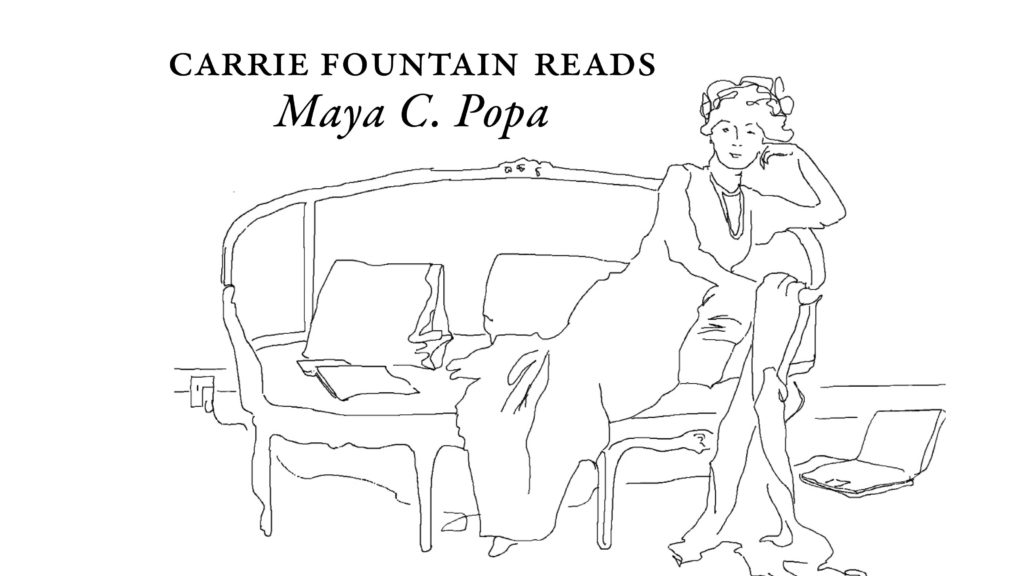National Poetry Month has arrived, and with it a second series of Poets on Couches. In these videograms, poets read and discuss the poems that are helping them through these strange times—broadcasting straight from their couches to yours. These readings bring intimacy into our spaces of isolation, both through the affinity of poetry and through the warmth of being able to speak to each other across distances.
“Letters in Winter”
by Maya C. Popa
Issue no. 236 (Spring 2021)
There is not one leaf left on that tree
on which a bird sits this Christmas morning,the sky heavy with snow that never arrives,
the sun itself barely rising. In the overcastnothingness, it’s easy to feel afraid,
overlooked by something that was meantto endure. It’s difficult today to think clearly
through pain, some actual,most imagined; future pain I try lamely
to prepare myself for by turning your voiceover in my mind, or imagining the day
I’ll no longer hug my father, his griptentative but desperate all the same.
At the café, a woman describes lilacsin her garden. She is speaking of spring,
the life after this one. The first thingto go when I shut the book between us
is the book; silence, its own alphabet,and still something so dear about it.
It will be spring, I say over and over.I’ll ask that what I lost not grow back.
I see how winter is forbidding:it grows the heart by lessening everything else
and demands that we keep trying.I am trying. But oh, to understand us,
any one of us, and not to grieve?
Carrie Fountain is the author of three books of poetry, most recently The Life, and serves as poet laureate of Texas.
from The Paris Review https://ift.tt/3mypqVf

Comments
Post a Comment